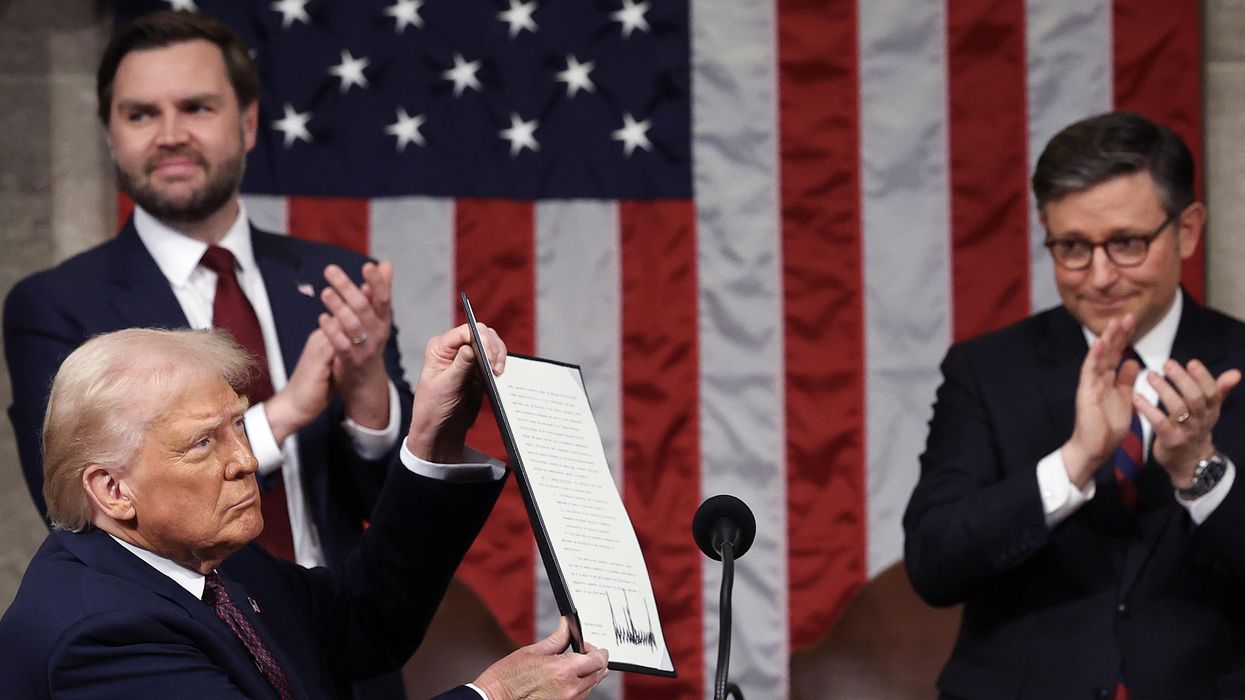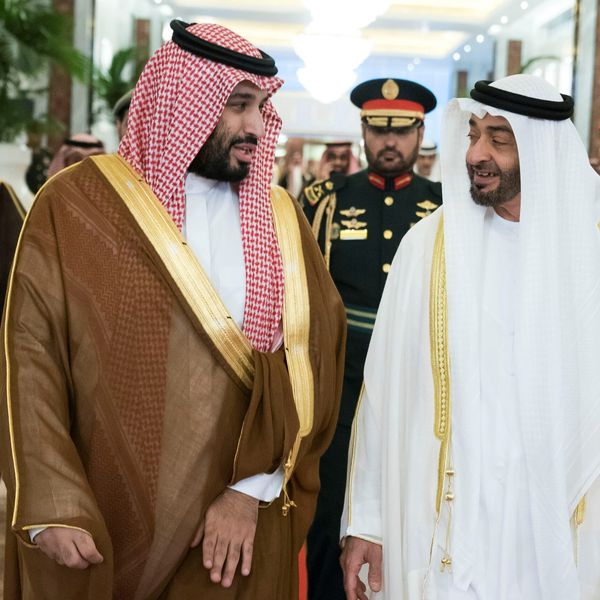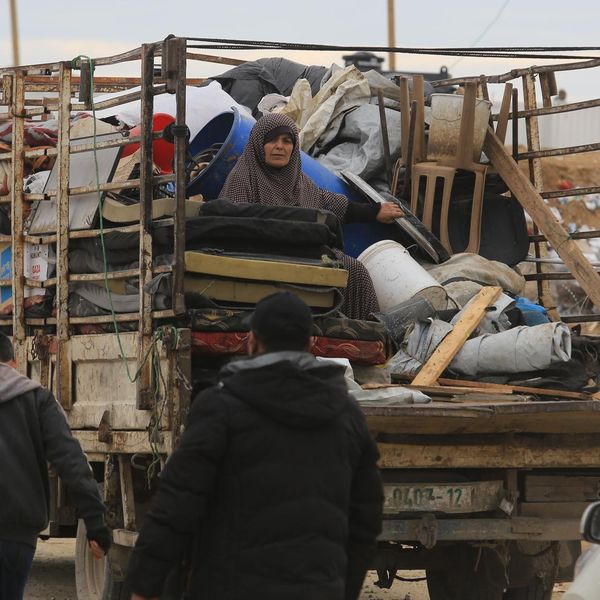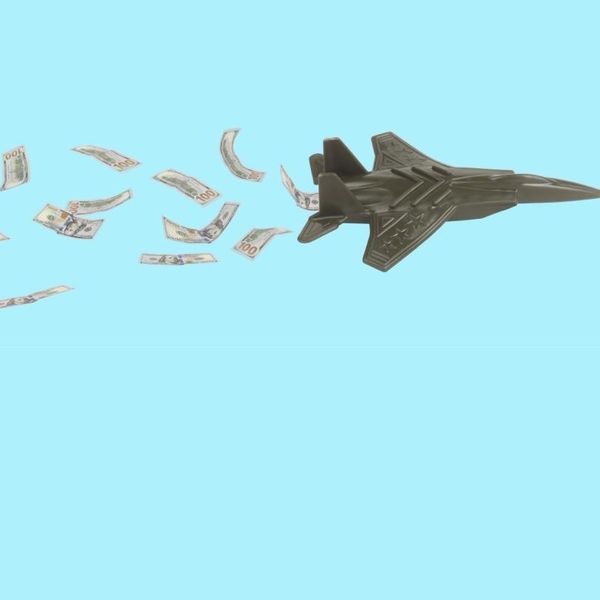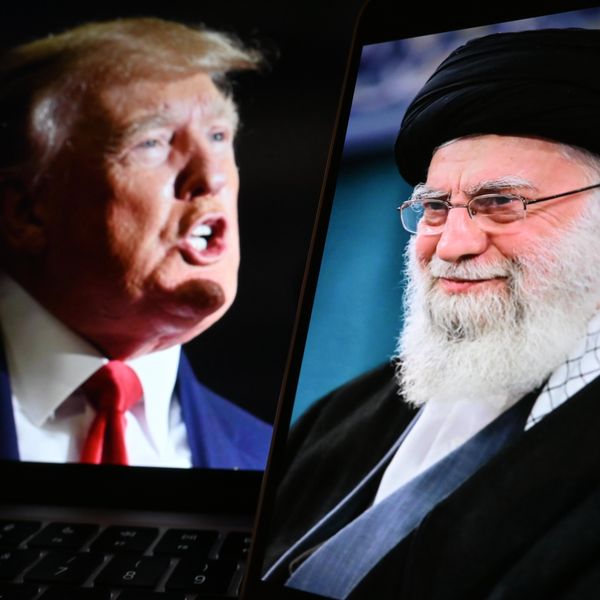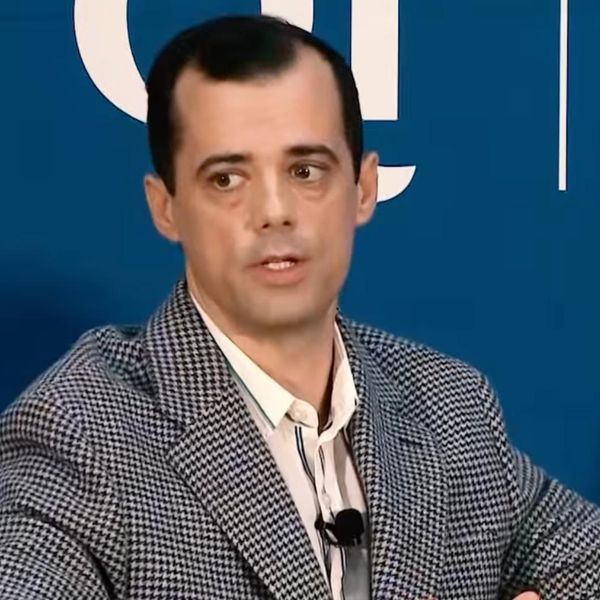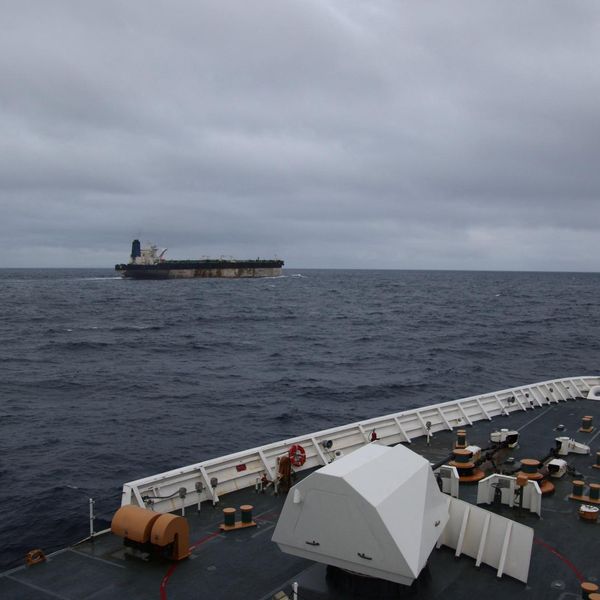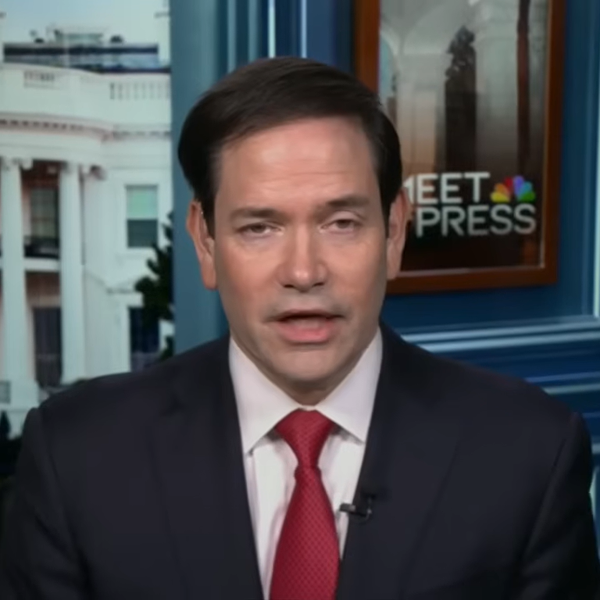During Monday’s last-minute meeting between President Trump and Israeli Prime Minister Benjamin Netanyahu, Trump announced that the U.S. will meet directly with Iran on April 12 to talk about a potential agreement over Tehran’s nuclear program.
Prior to this statement, Iran had declared that it was willing to engage in indirect talks with the U.S. about the possibility of renegotiating a nuclear deal. When reporters asked for more information on this previously undisclosed plans for a direct meeting, which Tehran had not yet confirmed, Trump merely reiterated that the talks would be at “almost the highest level” and “on Saturday.” Later reports indicated that U.S. envoy Steve Witkoff would be representing Washington in those talks.
Meanwhile, it was reported that Iran’s Foreign Minister, Abbas Araghchi, said they would be indirect talks in Oman, through a mediator.
“Everyone agrees that doing a deal is preferable to doing the obvious,” Trump said, referring obliquely to the possibility of direct American military action against Iran, a long-held goal of Netanyahu’s. Recent U.S. military deployments — most notably B-2 bombers to Diego Garcia and additional assets to the eastern Mediterranean — suggest contingency planning is well underway.
“I think everybody agrees that doing a deal would be preferable to doing the obvious," he added. "And the obvious is not something that I want to be involved with, or, frankly, that Israel wants to be involved with, if they can avoid it."
Prior to the meeting, Israel had voiced concern that Washington might reengage Tehran without obtaining sufficient guarantees on curbing or ending its nuclear program or curtailing its regional activities, particularly in Syria and Lebanon. Netanyahu’s team reportedly pushed for closer coordination with the administration on potential red lines, while also discussing enhanced air-defense cooperation, including recent deliveries of THAAD and Patriot systems.
During the press conference, several journalists pressed Trump for more information on his administration’s protectionist trade policy, including the 17% tariffs the U.S. levied on Israeli goods. When asked if those might be reduced, Trump demurred, replying, “We help Israel a lot, we give them four billion dollars a year,” and acknowledged that the amount the U.S. sends annually to Israel is among the highest. “We take good care of our friends,” he concluded.
The 17% duty imposed by the Trump administration on Israeli exports has created widespread concern among Israel’s economic sectors. Even after Israel removed the tariffs on American goods in a bid to escape Trump’s tariffs, the administration declined to exempt Israel. An Israeli manufacturing association estimated that the tariffs will result in a $2.3 billion decline in Israeli exports every year, as well as a possible loss of 18,000 to 26,000 jobs.
Netanyahu arrived in Washington seeking to reverse or at least soften the policy, underscoring Israel’s longstanding dependence on U.S. markets and the symbolic weight of reciprocity in the alliance; on that, he seems to have failed.
Despite Trump’s unwillingness to lift tariffs, Trump and Netanyahu projected a sense of camaraderie, with Trump falsely declaring that “this man is working very hard to get the hostages out, I hope he’s being appreciated,” despite abundant evidence that Netanyahu prioritizes bombing Gaza over rescuing Israeli hostages. Netanyahu responded, “I have a good partner.”
In his opening remarks, Netanyahu asserted that he wishes to allow Palestinians to leave Gaza, echoing Trump’s plan — aired during Netanyahu’s February visit, when he became the first foreign leader hosted by Trump at the White House since his inauguration — to remove all Palestinians from Gaza. Contrary to recent reporting, Netanyahu claimed that Israel is not preventing Palestinians from leaving the enclave.
Netanyahu appears to be trying to soften his tone on ethnic cleansing by emphasizing “voluntary” removal. In that vein, his government has now established a new agency to help facilitate the emigration of Palestinians who wish to leave Gaza, as his military expands its occupation of the territory, wreaking even more destruction and rendering it uninhabitable.
Netanyahu’s announcement of plans to create a so-called “Morag Corridor” in southern Gaza — an Israeli-controlled zone intended to split the enclave — has drawn criticism for institutionalizing fragmentation under the pretext of enhancing security. At the same time, the situation on the West Bank remained tense following the killing of 14-year-old Amer Mohammad Saada Rabee, a Palestinian-American fatally shot by Israeli forces during a raid on the town of Beit Rima, as well as the killing of 15 humanitarian workers by Israeli forces in Gaza.
The incidents have reignited scrutiny of U.S. policy toward Israel's military conduct, particularly in light of Washington’s continuing weapons transfers and staunch diplomatic support.
According to a recent poll, 70 percent of Israelis want Netanyahu to resign. He was supposed to appear on Monday and Wednesday in the Jerusalem District Court due to his ongoing efforts to escape prosecution for corruption and fraud. Netanyahu’s last-minute trip to Washington followed a visit to Budapest that prompted Prime Minister Victor Orban to begin the process to withdraw Hungary from the International Criminal Court in order to avoid its legal obligation to detain Netanyahu as a wanted war criminal.
During the briefing, a journalist asked about the reaction of Palestinian Americans who had voted for Trump because they believed he would end the war in Gaza. “I’d like to see the war stop,” Trump replied, adding that he hoped it would soon, but then shifted to discussing the U.S. bombing campaign against the Houthis in Yemen, as well as his plans to provide the Pentagon with a trillion-dollar budget, its largest ever. The journalist’s question remained unanswered.
(Editor's note: The story has been updated to accommodate new developments as of Tuesday)
- Trump appears all in for Netanyahu's political survival ›
- Can Trump wait for a deal with Iran? ›
- Human rights matter, but they shouldn't derail US-Iran talks | Responsible Statecraft ›

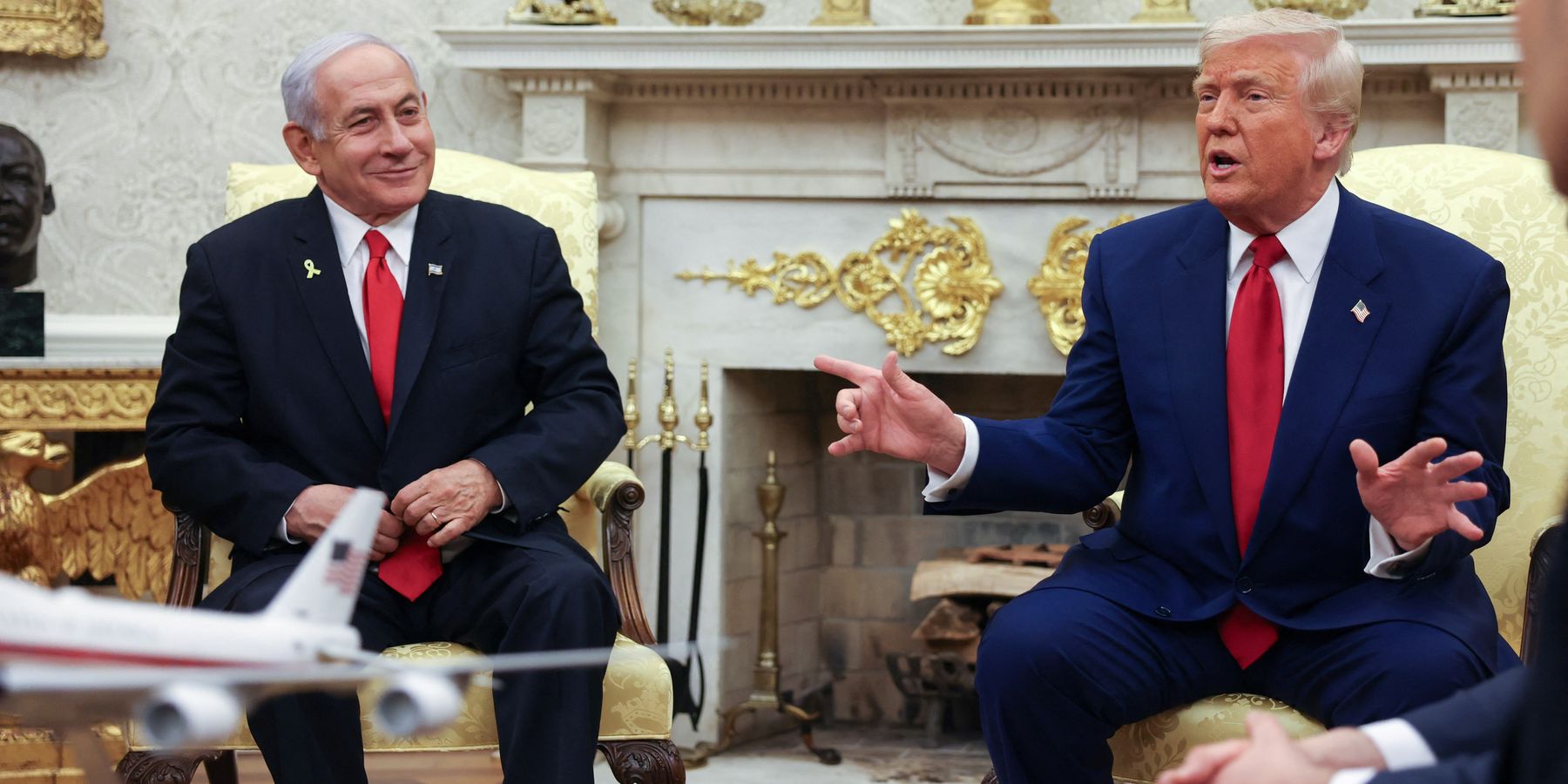
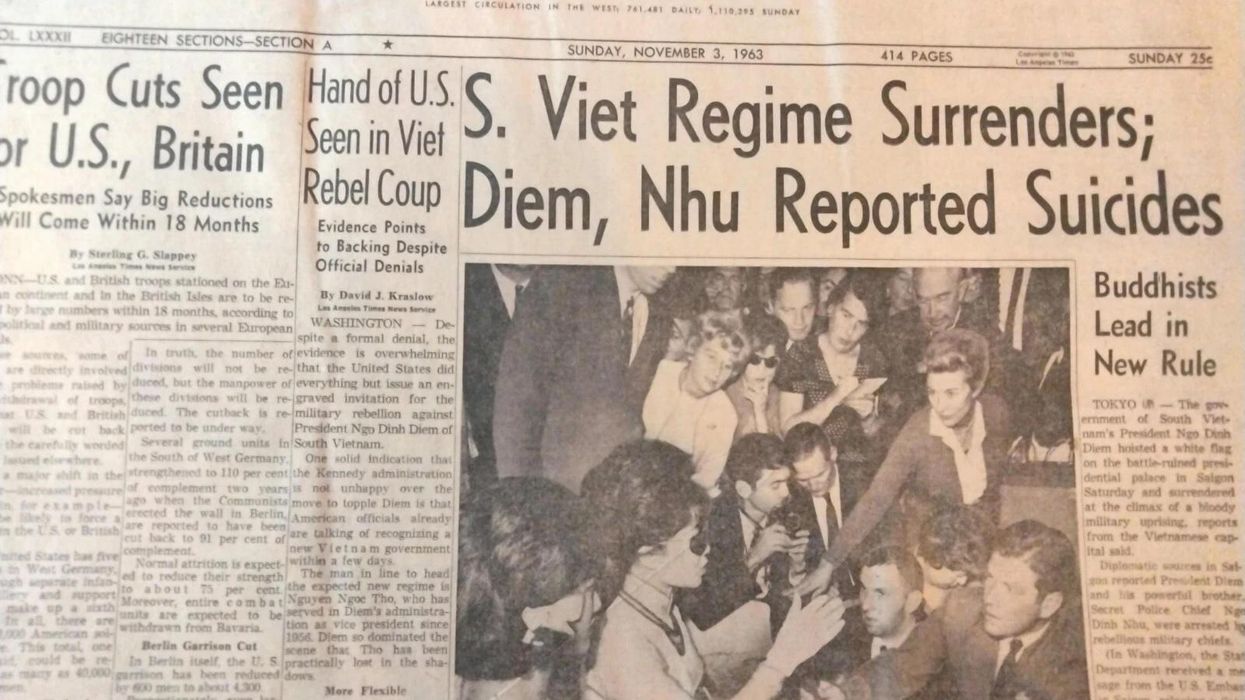
 Top photo credit: Ngô Đình Diệm after being shot and killed in the 1963 coup (US National Archives)
Top photo credit: Ngô Đình Diệm after being shot and killed in the 1963 coup (US National Archives) 